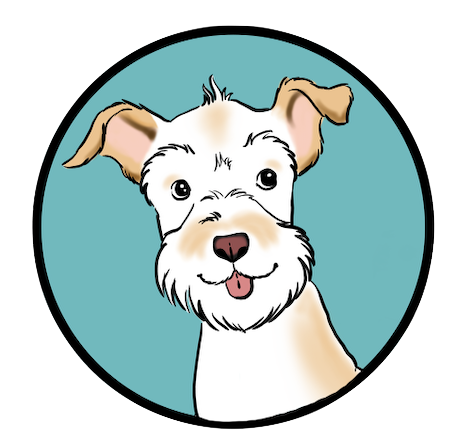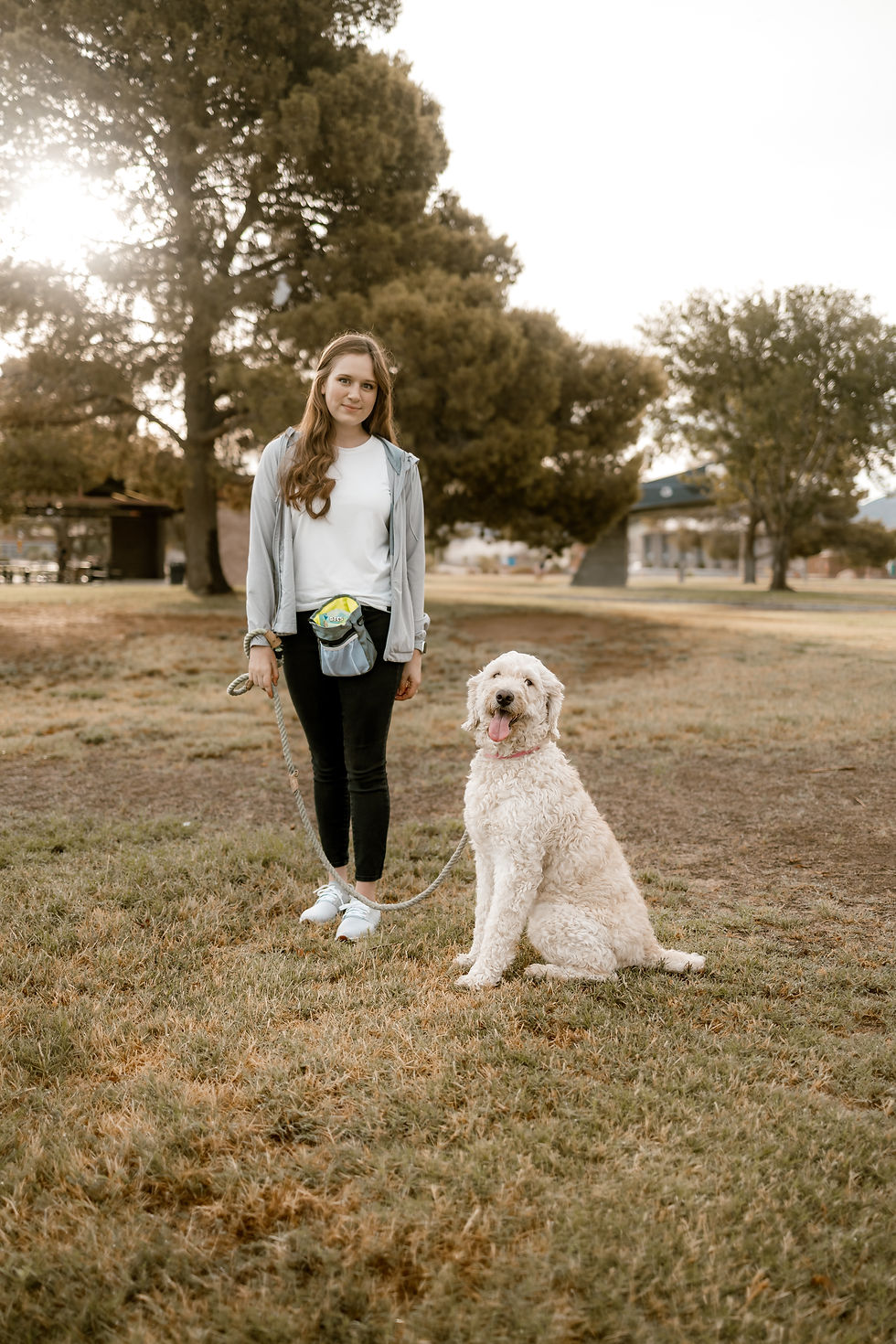5 Mistakes You Might Be Making With Your New Puppy + Training Freebie
- Apr 12, 2022
- 5 min read
Struggling with potty training, destruction, or excessive biting from your puppy? The reason why might be below! (freebie inside!)

1. You're giving your puppy too much freedom.
Puppies don't know right from wrong, they only know safe vs. unsafe. To them, potting on the carpet or chewing that door frame is the most natural thing in the world. As their humans, we have to set them up for success. That means creating an environment in which they can ONLY make the correct decision.
Block off access to rooms and areas you cannot directly supervise your pup in.
Use a play pen, crate, or puppy proof area to keep your puppy in if you are not directly supervising them.
Leash your puppy to you while walking around the house. I love this method because it accelerates both potty and manners training. You are right there with your dog ready to reward for behavior you like, redirect behavior you don't like, and watch for signs that they need to potty. Bonus: they learn to enjoy being on leash because it means they get yummy rewards :)
2. You haven't introduced your puppy to enough new animals or humans.
Dogs need socialization as a young puppy so they can be more accepting of new experiences as an adult. It's important to take advantage of the elasticity and "bounce back" a puppy's brain has while they are younger than 4 months old and show them all the new things! If I have a puppy client, my rule of thumb to follow is 1 new dog/1 new person/1 new experience a day until they turn about 12-13 weeks old! All dogs will vary on how much socialization they need as a puppy to be a well-rounded adult, but over-socializing is better than under-socialized! Just remember to go at your puppy's pace when showing them new things. If they seem nervous, don't force an interaction. The point of socializing is to show them that new things are fun!
3. You're not scheduling nap times.
I always joke how (albeit for a shorter time period) puppies are harder than human babies. They are at the same mental level, but they are mobile, don't wear diapers (more mess), they have sharp teeth, and they can destroy things! It's a good thing they're cute because no one would keep their puppy otherwise! Additionally, puppies don't garner the same community support around you that a new baby might. I hear "why did you get a dog if it's too hard" a lot when people are struggling with puppies. Essentially, new puppy parents can get overwhelmed very quickly.
Just like human children, dogs and puppies thrive on structure. The amount of nap time needed per puppy will vary, but they generally sleep 18-20 hours a day. Until about 4 months old, my puppies go on a schedule of 1.5 hour of play time, 2 hour nap (ideally). This gives pet parents a much needed mental break from their puppy, and the puppy gets to recharge. You might notice your puppy getting more ornery and bite-y, or zooming more when they are in need of a nap. I set my watch to the schedule of Tuna getting more bite-y when it was nap time, it was like clockwork! Additionally, scheduling nap times assists in potty training. You'll know when to take them out (before and after every nap) ahead of time each day. Just remember that it won't be like this forever and try to enjoy the chaos :)
4. You're not teaching them bite inhibition.
Speaking of being bite-y, do you know what to do when your puppy bites you?
Bite inhibition is the ability for a dog to control the pressure it applies with it’s jaw muscles. It is natural for a dog to use their mouth in a variety of situations, and is the main way puppies interact with the world around them. It is essential to learn this control, not having it presents a higher risk of injuring dogs or people when the dog mouths or bites. Puppies will yelp and withdraw from play when a littermate or playmate gets them too hard with their sharp teeth. This is natural and an essential part of puppy play, it teaches them to control their bite pressure otherwise their play session will end! Puppies should receive feedback from both dogs and people. Puppies learn this naturally from each other if they play regularly. The more puppies they interact with, the better they learn it. Interacting with well socialized adult dogs is also important. Ideally these adult dogs “know the rules” and will give very clear feedback to puppies on whether or not they are biting too hard.
Eventually, replace your skin/clothing with something more appropriate. Keep many different toys on hand. This can mean carrying toys around with you or in every room where your puppy stays. When your puppy gets wound up trying to mouth your hand or ankle, redirect them to an appropriate chew toy. This will be worth it when your pup grows up to mouth toys instead of your guests’ hands!
5. You're waiting to start training until they are 6 months old
This is one of those age-old dog training myths that do more damage than good. Puppies can start learning the same exact way adult dogs do by the time they are 8 weeks old. Sure, they may have less of an attention span, but it's still important to start early. Training helps build the bond between you and your dog, and teaching them HOW to learn is necessary before you teach them how to heel or stay in a down or do agility. Training early is highly encouraged for dogs you'd like to take in public frequently. Service dogs and therapy dogs will start their training from 1 week old (service dogs will start getting handled and exposed to new sounds and feelings while still with their mother and littermates).
Do you need training help for your puppy? My 5 week puppy program helps families with new puppies maintain (or regain) peace in their homes by:
helping you set up your home to make it easier to manage your pup,
showing you how to care for your puppy’s health and behavioral needs,
and getting your whole family engaged in basic manners training for your pup...
So that you can feel immediate relief from frustrations and have confidence that your pup will grow up into a well-mannered family dog.
You’ll learn a proven process and receive a customized plan for new puppy owners to reduce overwhelm, improve your puppy’s behavior, and regain tranquility in your home.
The whole family will be on the same page for your dog’s training.
Immediate relief from puppy behaviors such as nipping, jumping, and chewing.
Confidence in what you’re doing and how you’re handling your puppy.
Your household will be properly set up to manage your new puppy inside and out.
Know how to take care of your dog’s basic grooming needs like nail trims. (Save money from fewer vet visits!)




Comments